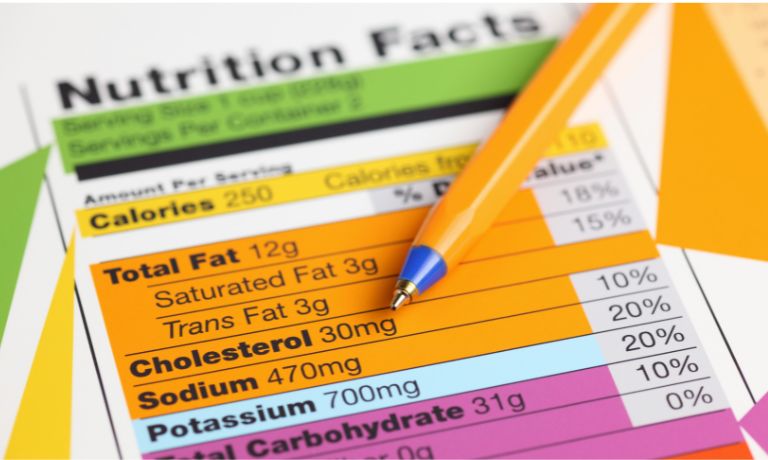Red wine is a popular alcoholic beverage often drunk during meals, celebrations, or social gatherings.
Many people want to know the number of carbs in this alcohol. And if you’re on a low-carbohydrate diet, you can be curious about the truth.
This article will discuss how many carbs in a glass of red wine and its potential health benefits.
Let’s scroll and discover in detail!
What Is Red Wine?
Red wine is a type of wine made from dark-colored grape varieties. Its color comes from the skin of the grapes left in contact with the juice during the fermentation process.
This beverage has several different varieties. Each has its unique flavor profile. Some popular kinds include:
- Cabernet Sauvignon
- Pinot Noir
- Merlot
- Shiraz
- Zinfandel
Cabernet Sauvignon is full-bodied. Also, its tannin content is relatively high. This feature gives it a dry and slightly bitter taste.
Pinot Noir is a lighter-bodied red wine. It tastes earthy and fruity. Besides, Merlot is another popular variety known for its soft and velvety texture.
Shiraz is a bold and spicy wine often paired with hearty meat dishes, while Zinfandel is a fruity and slightly sweet wine that pairs well with spicy foods.

Introduction of red wine
What Are Carbs?
Carbs, or carbohydrates are among the three macronutrients providing the human body with energy, protein, and fat.
There are two main types of carbohydrates: Simple Carbs & Complex Carbs.
[display-posts id=”55″ image_size=”thumbnail” posts_per_page=”1″]
Simple Carbs
Simple carbs, or “sugars,” comprise one or two sugar molecules. They are abundant in foods like fruit, milk, and table sugar.
Simple carbs are quickly broken down by the body, rapidly increasing blood sugar levels. They provide a quick energy source. However, you may encounter weight gain if consuming them too much.
Complex Carbs
Complex carbs are made up of long chains of sugar molecules. They are available in foods like whole grains and vegetables.
Because they take longer to break down, these carbs provide a slower and more sustained energy source.
They also contain vital nutrients like fiber, which helps to regulate digestion and promote feelings of fullness.
How Many Carbs In A Glass Of Red Wine?
The Food Network estimates that a 5-ounce (147 ml) glass of red wine has between 3.5 and 4 grams of carbs.
The type and the serving size will affect the carb number in this beverage. The carbs in red wine come from the residual sugar left after fermentation.
Compared to sweet types like Port or Lambrusco, dry red wines like Cabernet Sauvignon and Pinot Noir have fewer carbs.
The carb concentration in Cabernet Sauvignon is 3.8 grams. On the other hand, a glass of Port can contain up to 15 grams of carbohydrates.
[display-posts id=”489″ image_size=”thumbnail” posts_per_page=”1″]
It’s worth mentioning that the total carb count in this alcohol should not be the primary consideration when choosing one.
Red wine is also rich in antioxidants. Besides, it contains other beneficial substances. Keep reading until the end to discover its health benefits!

The carb content in a glass
Red Wine: Nutrition Facts
Red wine is a tasty drink. It also has many health benefits. Below are the nutrition facts about this beverage:
Carbs
Red wine is relatively low in carbohydrates. It is good news for those calculating their carb intake.
Calories
This beverage is not as high in calories as other alcoholic counterparts.
How many calories are in a glass of red wine? Depending on the specific type, it may range from 120 to 165.
How many calories are in a bottle of red wine? There are approximately 625 calories in a 750mL bottle.
That said, this calorie content will vary depending on the type and brand.
[display-posts id=”67″ image_size=”thumbnail” posts_per_page=”1″]
Fat
Red wine is virtually fat-free, making it a great drink option for those watching their fat intake.
Sugar
While red wine contains some sugar, the amount is relatively low. On average, a 5-ounce glass contains around 1 gram of sugar. However, some types may contain more sugar.
Vitamins
Red wine contains various vitamins, including C, K, and B6. They are vital for maintaining good health. Besides, they can help boost the immune system.
However, you shouldn’t use this alcoholic beverage as a primary vitamin source.

Nutrition facts
The Number Of Carbs In Different Types Of Red Wines
Various types of red wines contain different numbers of carbohydrates, as shown below:
| Red Wine Type | Carbs Count (g) |
| Petite Sirah | 0.8 |
| Pinot Noir | 3.4 |
| Gamay | 3.5 |
| Cabernet Franc | 3.6 |
| Merlot | 3.7 |
| Syrah | 3.8 |
| Shiraz | 3.8 |
| Malbec | 3.8 |
| Cabernet Sauvignon | 3.8 |
| Sangiovese | 3.9 |
[display-posts id=”297″ image_size=”thumbnail” posts_per_page=”1″]
Health Benefits Of Red Wine
Red wine is among the well-liked options thanks to its rich flavor. But do you know that it also offers many health benefits?
Below are the potential health benefits of this drink that you may not have known about:
Heart Health
Moderate consumption of red wine has been linked to improved heart health.
The antioxidants like resveratrol may help prevent damage to blood vessels. Also, these compounds can be beneficial in reducing heart disease risk.
Furthermore, this beverage may help increase good cholesterol and improve heart health.
Anti-Inflammatory Properties
Red wine contains anti-inflammatory compounds. They can help reduce inflammation throughout the body. It can benefit individuals with conditions such as arthritis or other inflammatory diseases.
Reduced Risk of Depression
Drinking red wine moderately can help you reduce the risk of depression. Moreover, this drink has antioxidants to protect the brain from oxidative stress.
[display-posts id=”638″ image_size=”thumbnail” posts_per_page=”1″]
Improved Brain Function
Resveratrol may improve cognitive function. Furthermore, this substance can protect against Alzheimer’s. Drinking this beverage in moderation may help improve memory and overall brain function.

Health benefits of red wine
Wrapping Up
Red wine is a tasty drink. It is also well-liked for its fruity and sweet flavors.
The carb concentration in a 5-ounce glass of this alcohol ranges from 3.5 to 4 grams. Generally, this content is relatively low.
Therefore, if you are on a low-carb diet, it’s possible to enjoy this beverage without thinking of the carb intake.
Of course, it’s crucial to enjoy alcohol in moderation and always to drink responsibly.


